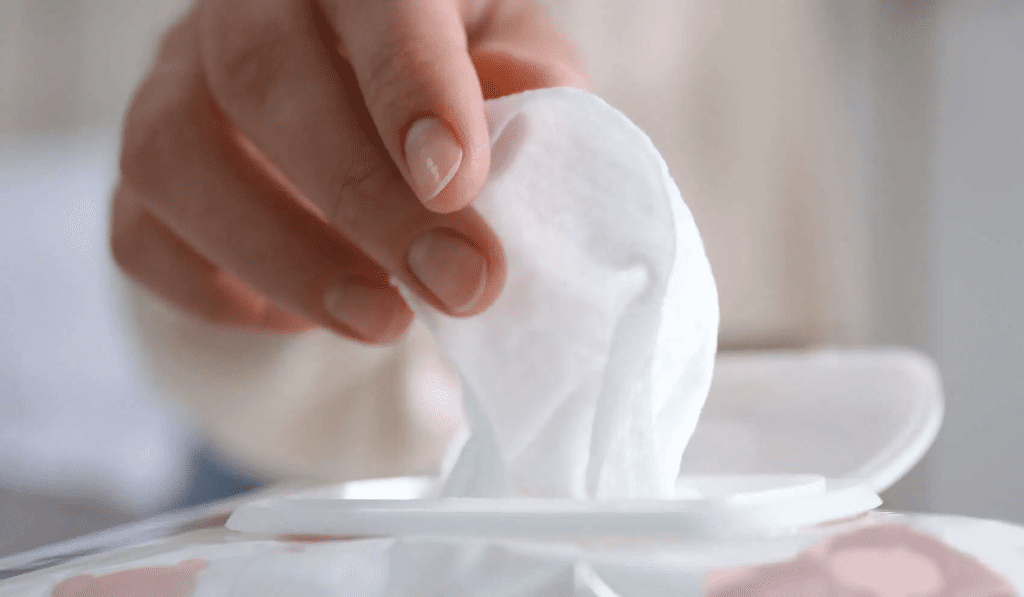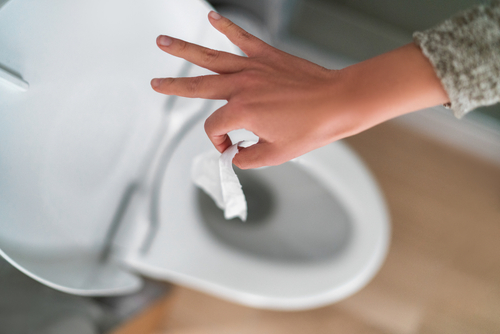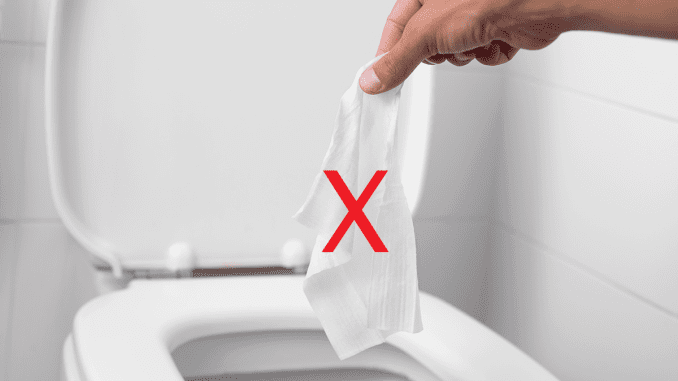Baby wipes are a household staple, perfect for cleaning up messes and maintaining hygiene. But a recurring debate often arises over how to dispose of them. Some people, like my mother-in-law, insist on flushing them down the toilet, arguing it’s harmless. Others, myself included, strongly disagree. So, who’s right? Let’s uncover the facts about baby wipes, their impact on plumbing and the environment, and explore smarter ways to handle this sticky situation.
Why Baby Wipes Shouldn’t Be Flushed

Flushing baby wipes might seem convenient, but it comes with significant downsides. Many wipes are labeled “flushable,” but don’t let that fool you. Unlike toilet paper, which dissolves quickly in water, baby wipes are made with durable synthetic fibers designed to stay intact during use. These materials make them tough enough for cleaning but also prevent them from breaking down in plumbing systems.
When you flush wipes, they don’t magically disappear. Instead, they cause a cascade of problems, both at home and in the environment. Let’s break it down.
The Environmental Impact of Flushing Wipes
Flushing baby wipes can have severe consequences for the environment. Here’s why it’s such a problem:
- Straining Sewage Systems: Municipal sewage systems aren’t designed to handle wipes. They can clog pumps, block pipes, and form massive blockages called “fatbergs” that require extensive (and expensive) removal.
- Polluting Waterways: Wipes that escape treatment facilities often end up in rivers, lakes, and oceans. Over time, they degrade into microplastics that harm marine life and contaminate ecosystems.
- Increasing Plastic Pollution: Most baby wipes are not biodegradable. Flushing them adds to the growing volume of waste that clogs landfills and pollutes natural habitats.
Every flushed wipe adds to the mounting challenge of managing waste responsibly, underscoring why proper disposal is critical.
The Plumbing Problems You Can’t Ignore
Environmental damage might feel like a distant issue, but flushing baby wipes also causes immediate and costly problems at home.
- Pipe Blockages: Baby wipes don’t dissolve like toilet paper. Instead, they stick to pipe walls, gradually building up into stubborn clogs.
- Sewage Backups: When pipes clog, it can lead to raw sewage backing up into your home—an expensive, unpleasant, and potentially hazardous mess.
- Costly Repairs: Hiring a plumber to remove blockages or repair damaged pipes isn’t cheap. In severe cases, entire sections of your plumbing system may need replacement.
Flushing wipes might seem like a quick solution, but the long-term costs and inconvenience far outweigh the momentary ease.
Navigating the Conversation with Your Mother-in-Law
Dealing with family disagreements, especially with a mother-in-law, can be tricky. If she’s set on flushing wipes, here’s how to approach the topic with care and tact.

- Start with Empathy: Acknowledge her perspective and good intentions. She may not realize the impact of her actions.
- Share the Facts: Present clear, practical information about the problems caused by flushing wipes. Highlight the potential for plumbing disasters and environmental harm.
- Offer Alternatives: Suggest easy solutions, like keeping a dedicated trash bin for wipes or switching to biodegradable options.
- Keep It Collaborative: Frame the conversation as a shared effort to protect your home and the planet. This approach can help her feel included rather than criticized.
With the right balance of empathy and facts, you can turn a potentially tense discussion into a productive one.
Smarter Ways to Dispose of Baby Wipes
If flushing isn’t an option, what’s the best way to handle used baby wipes? Here are some practical alternatives that are both plumbing- and eco-friendly.
- Trash Them: The simplest solution is to throw wipes in the trash. Keep a small, covered bin in convenient locations, like the bathroom or nursery, to make disposal hassle-free.
- Switch to Biodegradable Wipes: While they still shouldn’t be flushed, biodegradable wipes break down faster in landfills, reducing their long-term environmental impact.
- Use Reusable Cloth Wipes: For those looking to minimize waste, reusable cloth wipes are a sustainable option. They can be washed and reused multiple times, eliminating the need for disposables altogether.
These alternatives allow you to enjoy the convenience of baby wipes without the negative consequences of improper disposal.
Spreading Awareness About Proper Waste Management

Changing habits takes time, but raising awareness can make a big difference. If you want to encourage your family—or anyone else—to adopt better disposal practices, here’s how to spread the message effectively.
- Show Visual Proof: Images or videos of clogged pipes, sewage backups, or polluted waterways can drive home the seriousness of the issue.
- Emphasize the Costs: Highlight how proper disposal can save money on plumbing repairs, which might be a strong motivator.
- Share Resources: Many local governments and environmental organizations provide helpful guides on responsible waste management. Sharing these can reinforce your message.
Small, consistent reminders can help shift behaviors, making proper disposal a habit rather than an afterthought.
Conclusion: Why Responsible Disposal Matters
The debate over flushing baby wipes goes beyond convenience—it’s about responsibility. While it’s important to consider family dynamics and maintain harmony, the need to protect our homes and the environment is non-negotiable.
By presenting facts, offering practical alternatives, and fostering collaboration, you can address this issue without unnecessary conflict. Whether it’s convincing your mother-in-law or educating others, the goal is to balance respect with action.
In the end, making informed choices about baby wipe disposal benefits everyone. It protects your plumbing, reduces environmental harm, and ensures we all contribute to a cleaner, healthier planet. So next time you’re tempted to flush a wipe, remember—it’s the little changes that make the biggest impact.


